Make a Year-End Gift Today!
‘Angelica’s Little Diablo’ Pepper
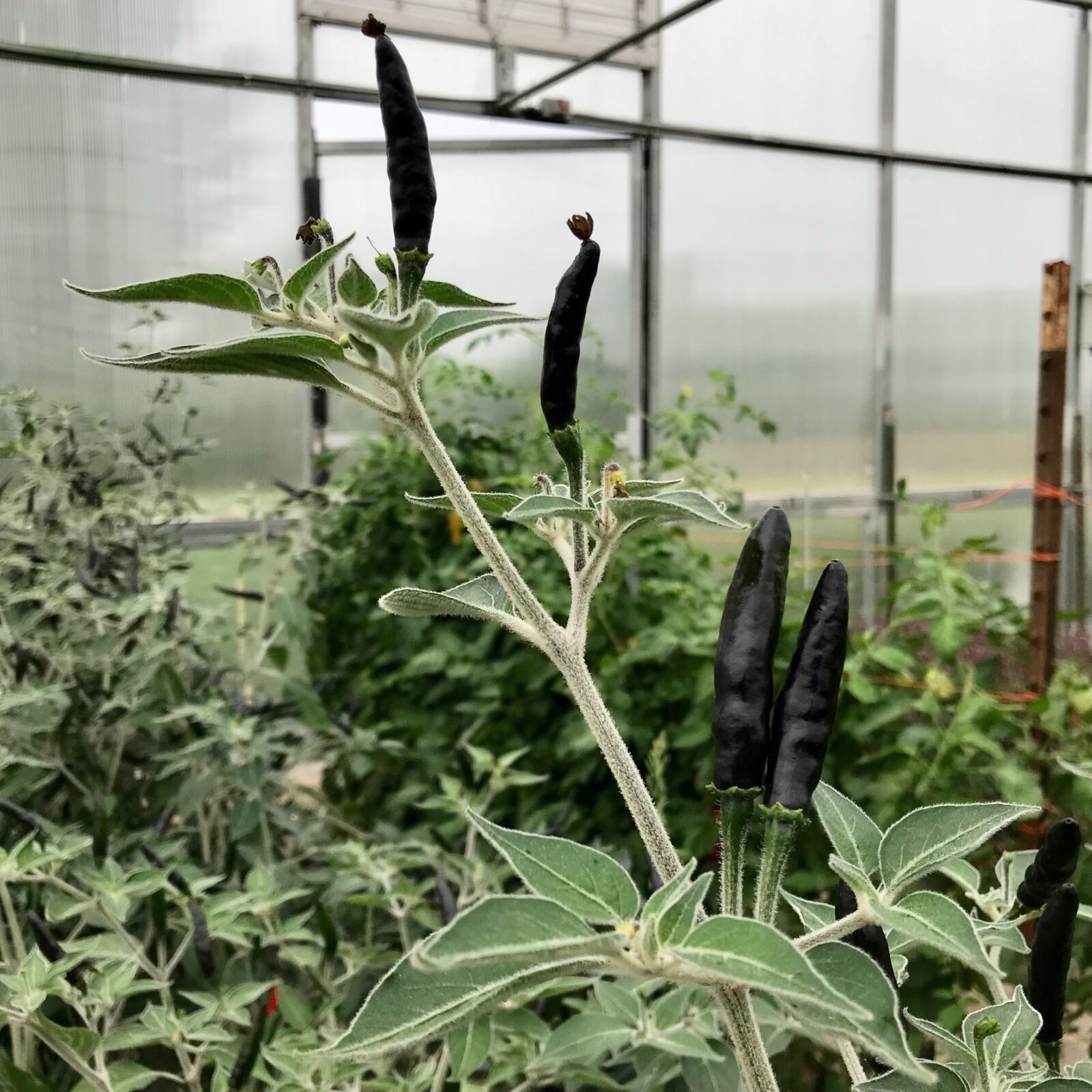
‘Angelica’s Little Diablo’ Pepper
In 2024, Seed Savers Exchange received a call from Norma Ortiz, a dedicated gardener and seed saver. Four years earlier, Norma had donated ‘Angelica’s Little Diablo’ pepper seeds to Seed Savers Exchange, ensuring its preservation for future generations. But this year, Norma’s own garden faced an unexpected challenge. She had lost her entire supply of ‘Angelica’s Little Diablo’ seeds.
Norma asked if SSE could send her some of the seed regenerated since her donation. Thanks to the generous support of our community of donors, we were able to say yes immediately!
This moment of fear, suspecting a treasured garden variety being lost, shows why the mission of Seed Savers Exchange is critical. Seeds do so much more than grow plants and provide food. They create connections to our heritage, our history, and to our community. Seeds build resilience, and they strengthen biodiversity. That’s why the work to prevent the extinction of heirloom seeds like ‘Angelica’s Little Diablo’ pepper needs to continue on.
The reality is that many heirloom seed varieties are at risk today.
History
Norma Ortiz of Redway, California, received the seeds of ‘Angelica’s Little Diablo’ pepper in 2014 from a woman named Angelica. Norma, an avid gardener for over four decades, says she hadn’t seen this “delicious, but hot” variety before. She later donated the variety to Seed Savers Exchange.
However, the story of ‘Angelica’s Little Diablo’ can be traced back at least 150 years. Angelica and her mother emigrated from Oaxaca, Mexico, to California during the 1970s. They brought with them the seeds of this pepper that had been in their family for over a century.

Angelica’s family had grown these peppers for generations. The peppers brought bold flavors to countless meals, but seeds like ‘Angelica’s Little Diablo’ pepper also symbolize strength, perseverance, and a connection to family traditions passed down through time.
Norma met Angelica in 2014. Norma’s mother, Natalie Moraga, lived in Ukiah, California, 95 miles south of Redway. When visiting Natalie, Norma often saw an older woman wearing a black shawl walk quickly by the house. Norma was intrigued by this woman, who was usually with a younger woman and a bunch of kids trying to keep up with her.
One day, while Norma was helping her mother with the morning routine of sweeping her front sidewalk, the woman with the black shawl walked by. Norma greeted her and her companion, her daughter, Angelica. Norma recalls the “Old Lady”—94 years old at the time—as a very energetic woman who would often say, in Spanish, that her daughter and grandchildren walked lazily. She passed away a few years later at age 98.
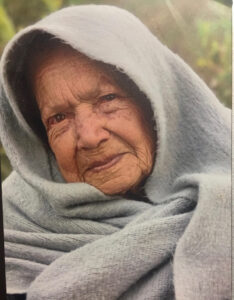
After that first encounter, Angelica and Norma discovered their common passion for gardening, and a friendship between them flourished. Angelica has long kept a small backyard vegetable garden where she can grow in abundance—more than 600 plants, both on the ground and in containers. Norma has been gardening for as long as she can remember.
Through this friendship, Norma received Angelica’s treasured pepper seeds. But Angelica entrusted Norma with more than just seeds; she shared a piece of her heart, her culture, and her family’s journey.
Norma became the next steward of this heirloom pepper, growing it in her own garden in Redway, California. After years of tending and loving the pepper herself, Norma decided to donate it to Seed Savers Exchange in 2020. She hoped that by doing so ‘Angelica’s Little Diablo’ pepper, along with its story of heritage and resilience, would be preserved and passed on to future generations.
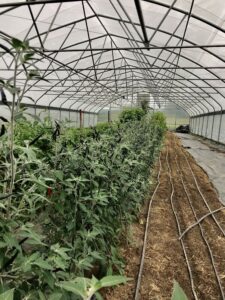
Family traditions
Norma has been gardening for as long as she can remember. She learned to work the soil from her parents and grandparents.
Norma can trace her ancestors back to the mid-1800s. Her great-grandfather, a Mayo Indian, emigrated from Sonora, Mexico, and settled in Aravaipa Canyon, Arizona, around 1870. Family elders told Norma her relatives from Sonora were all farmers and had brought seeds with them.
“My soil is my glory. […] I am in love with soil and all its hidden wonders and miracles.”
Rosa Salazar, a close relative, told Norma that her grandfather Laureano Moraga used to make hermoso suelo (beautiful soil). “Soil? How did my grandpa make soil?” Norma asked with a sense of pride, as she’d always loved gardening. Rosa laughed and shared a story that Norma recalls clearly even today:
Mija, we all made soil. Some of us just made better soil. Your grandpa would proudly say, ‘¡Pero mi suelo está vivo!’ (But my soil is alive!) We thought your grandpa didn’t know how to plow or didn’t want to plow. Most of us plowed into our cow and horse manure. Plowing was hard work. “But, you know, he was never lazy. He would use all his mules and horse manure. All the leaves he could gather. He would just layer them right on the ground. Maybe he was smarter not to work so hard.
He would go into the canyon with gunny sacks and fill them with stuff from under the trees. He would mix that stuff into the piles of manure and leaves. He would never pull weeds. He would cut them and leave them. He would say, ‘las raíces son alimento para mis gusanos’ (the roots are food for my worms). I can see him now, moving back soil so he could show off his worms.
A hundred years ago, Norma’s grandfather was mimicking nature. “Today we call it permaculture or soil rejuvenation,” Norma says.
Like her grandfather, Norma does not till or plow her gardens. She layers any organic matter she can find—leaves, grass clippings, kitchen scraps, garden waste, horse and cow manure, and worm casting every spring.
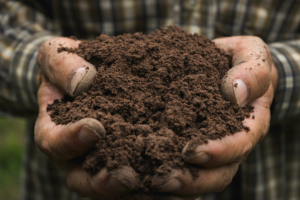
“Rosa’s story about my grandpa’s soil has played an important role in my life—I garden just as my grandpa did,” Norma says. “Today, I know and understand the importance of this method. […] I have made rich living soil on top of sand and clay. I layer and layer. Within a short time, the layered matter decomposes into hermoso suelo.”
Norma says her vegetables are sweet to the tongue because her soil is alive. The abundance of worms is proof of it, she adds. “I even raise worms in old bathtubs so that I can collect their castings. I call it black gold.”
Today, Normal lives in the mountains near Miranda, California (11 miles north of Redway). She keeps summer and winter gardens where she grows almost everything she eats from seeds that she has either saved or exchanged. She has also planted over 50 different fruit trees.
Norma claims she rarely has to buy any food, and when she needs something, she barters and exchanges with her neighbors. Norma proudly says she lives off the grid and has been debt-free for the past 20 years. “I don’t rely on corporations for energy as I have solar and hydro energy in my property,” she says.
Our work is more critical than ever
When an unexpected challenge wiped out Norma’s supply of ‘Angelica’s Little Diablo’ seeds, she turned to Seed Savers Exchange for help. Thankfully, SSE had been stewarding these seeds and was able to reunite Norma with her beloved heirloom pepper. Without Seed Savers Exchange, this priceless variety and its history would likely have been lost.
As a nonprofit, Seed Savers Exchange relies on the support of individuals who care about biodiversity to ensure that diverse, heirloom seeds like ‘Angelica’s Little Diablo’ pepper remain available for future generations. Since 2021, these pepper seeds have been available to gardeners through the Exchange.
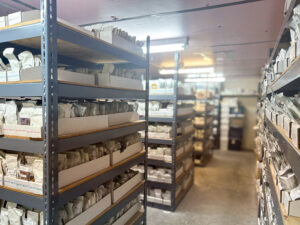
Today, ‘Angelica’s Little Diablo’ pepper is just one of the thousands of varieties preserved in our seed bank collection. The collection holds not only seeds but also the legacies of families from around the world. Many of these priceless varieties crossed borders many years ago with their stewards and found new homes in which to thrive. Each variety tells a story of courage, adaptability, and the desire to keep traditions alive.
But the truth is, precious heirlooms like ‘Angelica’s Little Diablo’ pepper are increasingly under threat. In fact, vegetable varieties represent less than 10 percent of genebank accessions globally.
This dwindling biodiversity is alarming. As the climate changes and food production becomes increasingly industrialized, many traditional and regionally adapted seed varieties are disappearing.
Our work is more critical than ever. Once these seeds are gone, they’re forever lost.
Your support has an impact
Support from people who care make it possible to regenerate the heirlooms in the collection and share them with others. This way, the seeds and their legacies can live on.
With your help, we can protect these legacies.
A year-end gift to Seed Savers Exchange does more than just preserve seeds and bolster biodiversity. Your help allows us to nurture the stories and cultural heritage that these seeds carry.
In today’s world, fewer people have the opportunity to grow their own food. The traditional practices of seed saving have likewise decreased. Many historically cherished varieties are fading from our gardens and plates.
But your support makes a difference:
Care and Conservation: Seed Savers Exchange maintains a living genebank of over 20,000 unique, rare, and endangered seed varieties. This includes many varieties which cannot be found anywhere else. Each seed variety is carefully cataloged, grown, and preserved to ensure its survival.
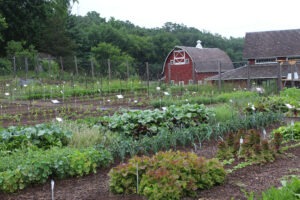
Increasing Seed Quantities and Distribution: At our Heritage Farm headquarters in Decorah, Iowa, we grow, save, and distribute heirloom seeds to gardeners and farmers. These diverse seed varieties can thrive in home gardens, support local ecosystems, and contribute to food security.
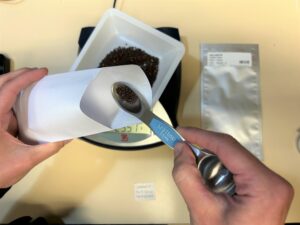
Education and Outreach: We work to educate people about the importance of seed saving and the role that biodiversity plays in a healthy food system. Through our workshops, publications, and community outreach, we inspire people of all ages to become stewards of their food heritage.
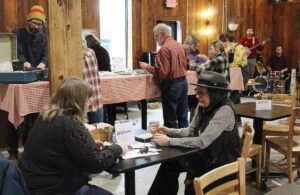
Community Support: By supporting local seed-saving and seed-sharing initiatives, we empower communities to preserve their unique crop diversity and help foster regional food resilience.
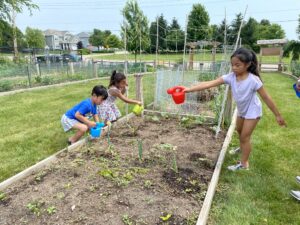
Together, we can help bridge the gap between generations. Together, we can reconnect people with the beauty of growing and sustaining themselves with food.
With your support, we can continue to carry these seeds—and the cultures and wisdom they embody—into the future.
As we approach the end of 2024, please consider making a year-end, tax-deductible gift to Seed Savers Exchange. Your contribution is crucial to safeguarding thousands of seed varieties that nourish people today and will continue to do so for generations to come.
Gifts may also be sent to
Seed Savers Exchange
3094 North Winn Road
Decorah, IA 52101
Legal Name: Seed Savers Exchange, Inc.
Tax ID: 43-1214133